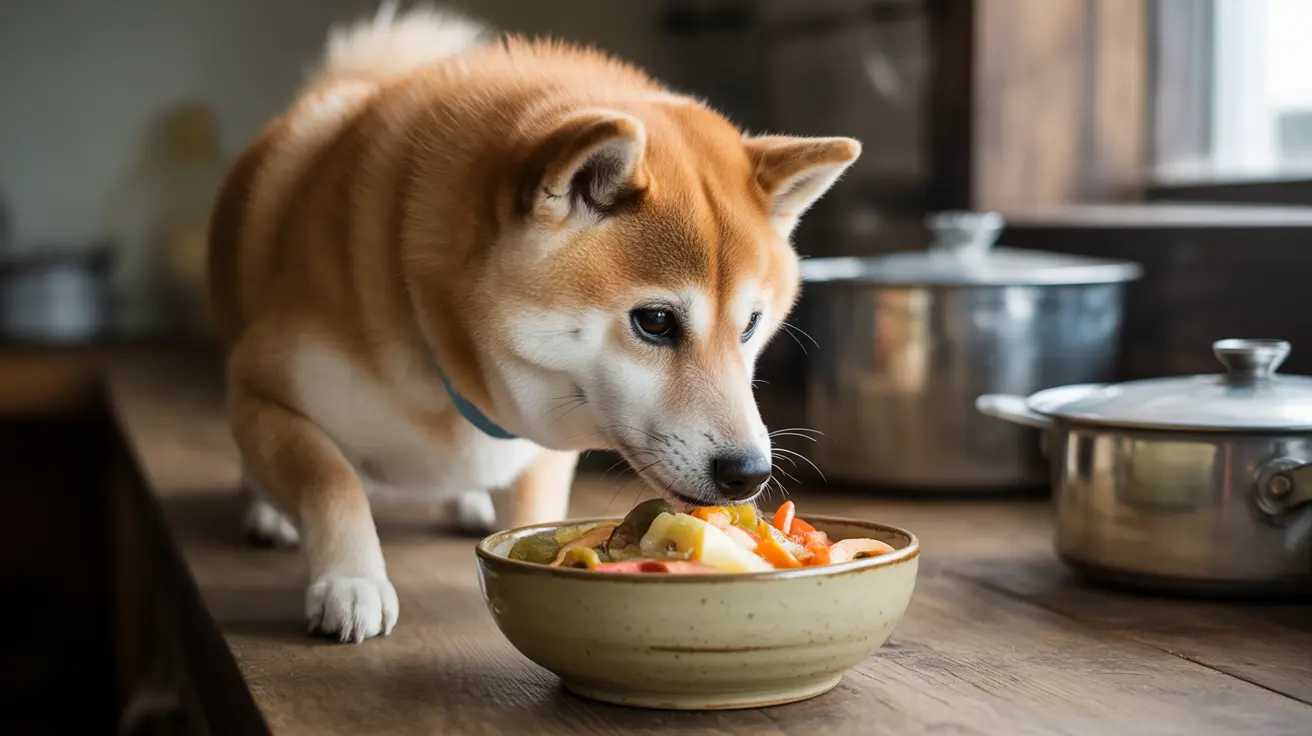Understanding Kimchi and Its Impact on Dogs
Kimchi is a traditional Korean fermented dish primarily made from vegetables like napa cabbage and Korean radishes. While the fermentation process creates beneficial probiotics, standard kimchi recipes include several ingredients that can be dangerous for dogs, such as garlic, onions, and high levels of sodium.
The basic fermentation process itself isn't harmful to dogs, but the seasonings and additional ingredients commonly used in kimchi preparation pose significant risks to canine health.
Dangerous Ingredients in Traditional Kimchi
Allium Family Toxicity
Traditional kimchi contains members of the allium family (garlic and onions) which are toxic to dogs. These ingredients can cause damage to red blood cells, potentially leading to anemia. Even small amounts can be harmful, and the effects can be cumulative over time.
Spicy Components and Salt Content
The chili peppers and high salt content in kimchi can cause:
- Severe digestive upset
- Dehydration
- Excessive thirst
- Sodium ion poisoning in extreme cases
Safe Alternatives for Dogs
If you're interested in providing probiotic benefits to your dog, consider these safer alternatives:
- Plain, unflavored yogurt (without artificial sweeteners)
- Commercial pet-specific probiotics
- Specially formulated pet-safe fermented products
- Plain, unseasoned sauerkraut in small amounts
Creating Dog-Safe Fermented Foods
If you're determined to make a dog-safe version of fermented vegetables, consider these guidelines:
- Use only plain cabbage or other dog-safe vegetables
- Avoid all allium family ingredients
- Minimize salt content
- Skip spicy ingredients entirely
- Consult with your veterinarian about proper portions
What to Do If Your Dog Eats Kimchi
If your dog accidentally consumes traditional kimchi, watch for these symptoms:
- Vomiting or diarrhea
- Excessive thirst or urination
- Lethargy or weakness
- Pale gums
- Rapid breathing or heart rate
Contact your veterinarian immediately if you notice any of these signs, especially if your dog has consumed a large amount of kimchi.
Frequently Asked Questions
Can dogs safely eat kimchi, and what ingredients should I avoid in it?
Dogs should not eat traditional kimchi as it contains toxic ingredients like garlic and onions. Additionally, avoid kimchi with chili peppers, excessive salt, and fish sauce. If making a dog-safe version, use only plain vegetables and minimal salt.
What health benefits can kimchi provide to dogs when given properly?
A dog-safe version of fermented vegetables can provide probiotics that support gut health and immune function. However, these benefits can be more safely obtained through commercial pet probiotics or plain yogurt.
How can I prepare homemade kimchi that is safe for my dog to eat?
To make dog-safe fermented vegetables, use only plain cabbage, a small amount of sea salt, and avoid all spices, garlic, onions, and fish sauce. Always consult with your veterinarian before adding any fermented foods to your dog's diet.
What symptoms indicate my dog may have a negative reaction after eating kimchi?
Watch for vomiting, diarrhea, excessive thirst, lethargy, pale gums, and rapid breathing or heart rate. If you notice any of these symptoms after your dog consumes kimchi, contact your veterinarian immediately.
Are there safer probiotic alternatives to kimchi for supporting my dog's gut health?
Yes, safer alternatives include plain yogurt without artificial sweeteners, commercial pet probiotics, specially formulated pet-safe fermented products, and small amounts of plain sauerkraut. Always introduce new foods gradually and monitor your dog's response.
Conclusion
While kimchi offers numerous health benefits for humans, traditional recipes are not safe for dogs due to toxic ingredients and high sodium content. Instead of sharing kimchi with your furry friend, opt for pet-safe probiotic alternatives or consult with your veterinarian about appropriate supplements for your dog's specific needs.






